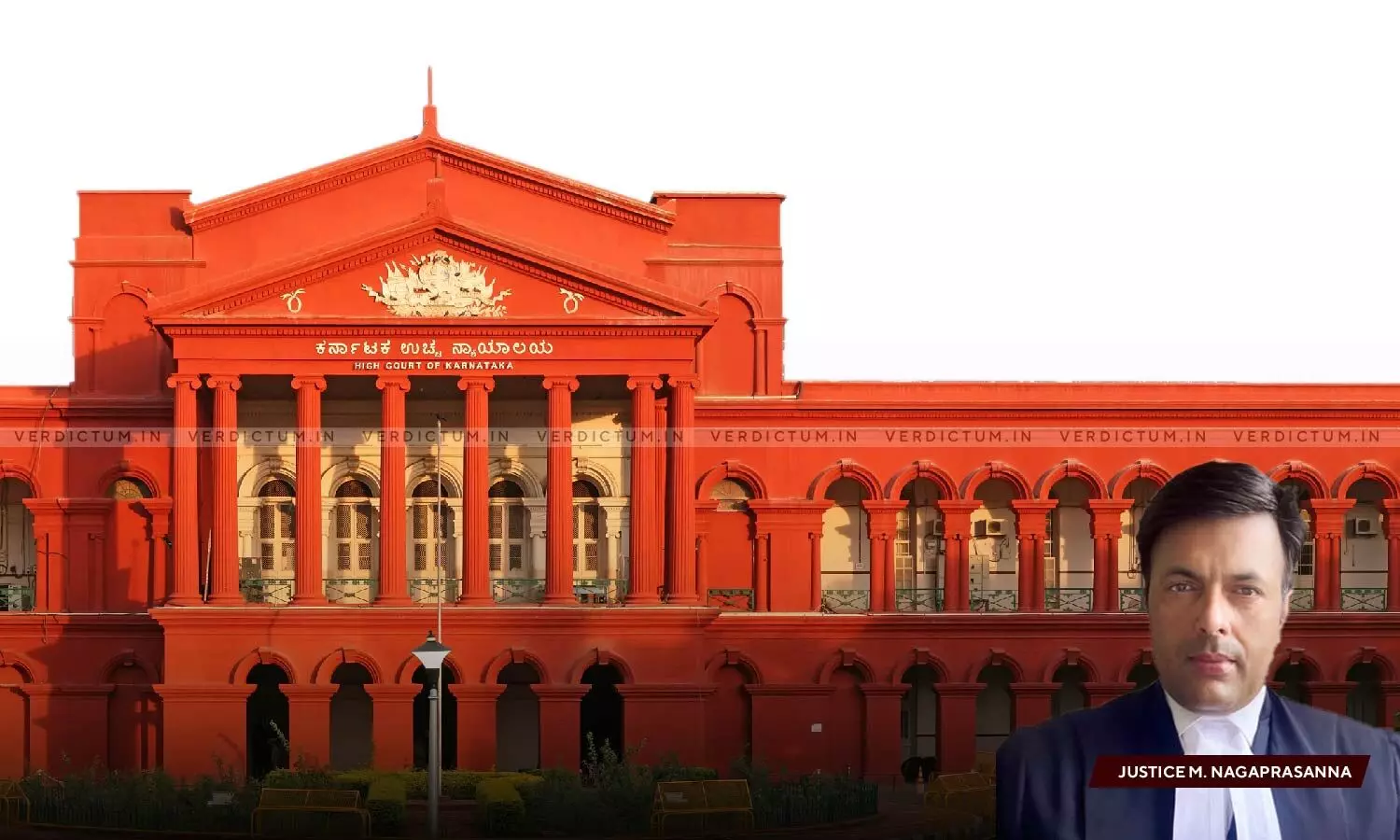
Merely Because It Is Construction Of Houses For Slum Dwellers, Contractor Cannot Take It For Granted- Karnataka HC Refuses To Grant Extension Of Time To Contractor
 |
|The Karnataka High Court, while refusing to grant an extension fo time to a contractor to complete the contract work has observed that a contractor or tenderer cannot take the construction of houses for slum dwellers for granted.
The Court observed thus in a writ petition filed by a private company against the order passed by the Karnataka Slum Development Board (KSDB) by which it rejected the representations of the said company. It sought a consequential direction to the Commissioner of KSDB to extend the time to conclude the work allotted to it in terms of three work orders.
A Single Bench of Justice M. Nagaprasanna said, “Merely because it is construction of houses for slum dwellers, a contractor or a tenderer cannot take it for granted. It is these slum dwellers who need the houses to reside, as the condition of living of slum dwellers is to be improved on a war footing. It is in that avowed objective that the Board directed rehabilitation by reconstruction of slums by building houses in those areas.”
The Bench added that 10 years have passed by but construction of houses is not completed and that the company ought not to have dodged the completion even though extension was granted twice.
Senior Advocate D.R. Ravishankar appeared for the petitioner while HCGP Spoorthy Hegde appeared for the respondents.
Brief Facts -
The petitioner was a construction company involved in construction of dwelling houses and claims to be the recipient of tenders from the hands of the Board on several occasions. The Board entered into a contract with the company in 2016 pursuant to a notification issued and the company emerged as the successful bidder for construction of rehabilitation of dwelling houses for the slum dwellers floated by the Board. The work orders were issued to the company but it did not complete the project as was necessary under the contract which led the Board to grant extension for a period of 654 days from the date on which the plots were given to its possession. The company did not complete the project even then.
Another extension was granted for a period of one year viz., 365 days and in 2021, the contract awarded to the company was terminated. The company then submitted representations for grant of six months’ time to complete the entire award of work. Those representations were not considered and, therefore, three writ petitions were preferred before the High Court. The Court disposed of all the writ petitions directing consideration of those representations. On certain clarification, review petitions were preferred which also came to be turned down as the direction had already been issued to consider those representations.
The High Court in view of the above facts noted, “Two glaring factors that have happened in these proceedings are that, termination order dated 27-07-2021 has become final, as the co-ordinate Bench did not set aside the order of termination. It only directed consideration of the representations. Therefore, as on today, the order of termination passed against the petitioner in all contracts has become final, as the petitioner even in the subject petition does not challenge the said order of termination. What is challenged is only rejection of the representations.”
The Court further said that much water has flown under the bridge after the order of termination and three tenders were issued for the same work that the petitioner had left mid-way.
“The tenders were for a specific purpose of construction of houses and the balance work. The petitioner while filing the subject writ petition was completely aware of the tenders being notified and they being notified for the balance work. … In total out of 1978 houses allotted for construction in 9 slums what is started is 1208, completed is 674, incomplete is 505 and not even started is 799. If this is the figure of completion of work from the petitioner, no indulgence can be shown for a direction to be issued granting extension of time to complete the work”, it observed.
The Court also said that merely because the petitioner has constructed 60% or even 70% of houses, that would not ensure to its benefit for a direction of extension to be granted to the petitioner.
“The petitioner is an unwilling horse, though taken to a lake bed, is not ready to drink water. I use this metaphor to drive home that that the petitioner despite being granted time, time and again, has not completed the work. Therefore, no indulgence can be shown to the petitioner on any ground whatsoever”, it concluded.
Accordingly, the High Court rejected the petition and directed the Board to issue appropriate work order and get the houses of poor slum dwellers completed within a time frame and not put their lives in jeopardy.
Cause Title- Aishwaryagiri Constructions Pvt. Ltd. v. The State of Karnataka & Ors.
Appearance:
Petitioner: Advocate Saravana S.
Respondents: Senior Advocate K. Shashikiran Shetty and Advocate B.B. Patil